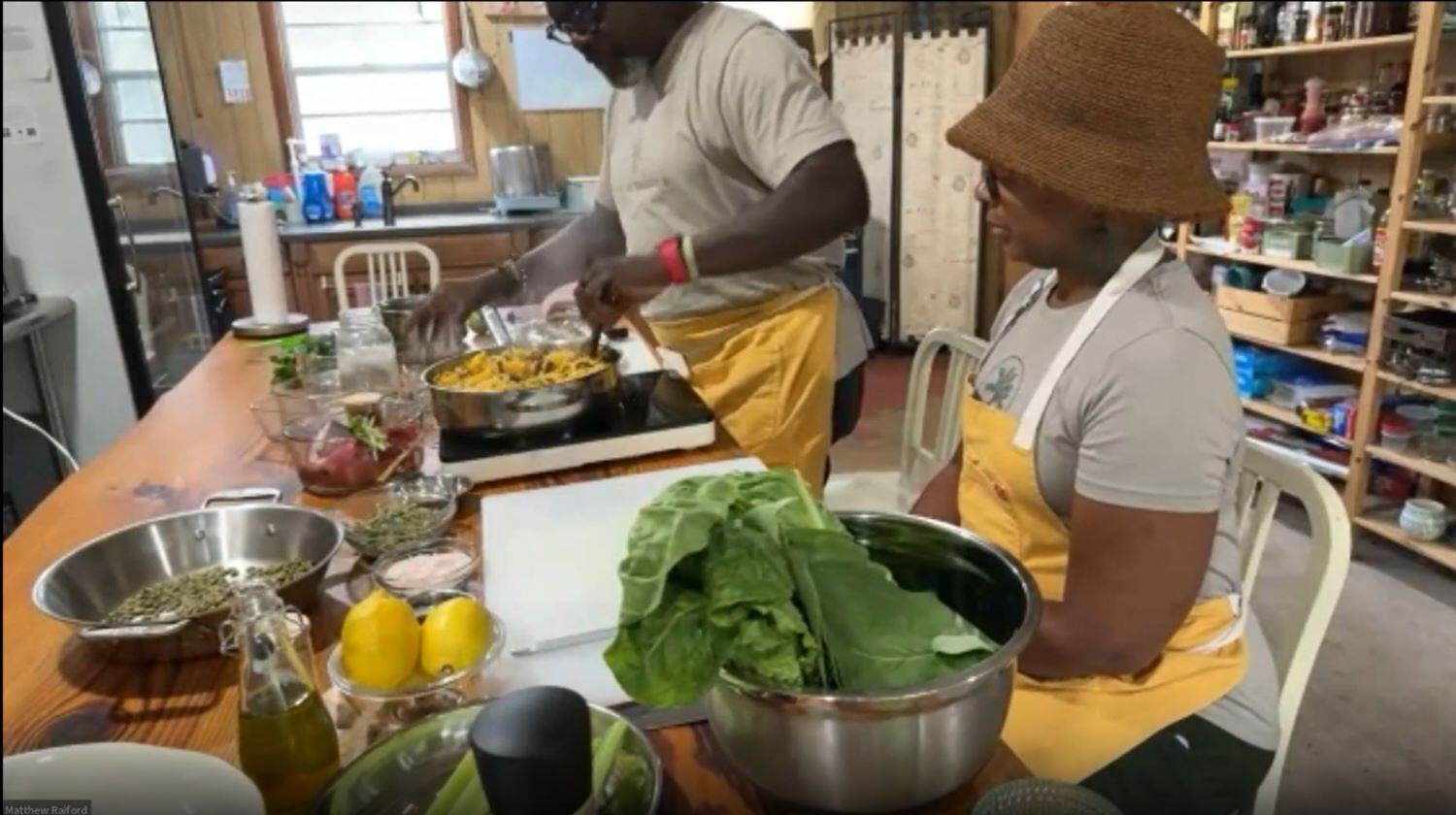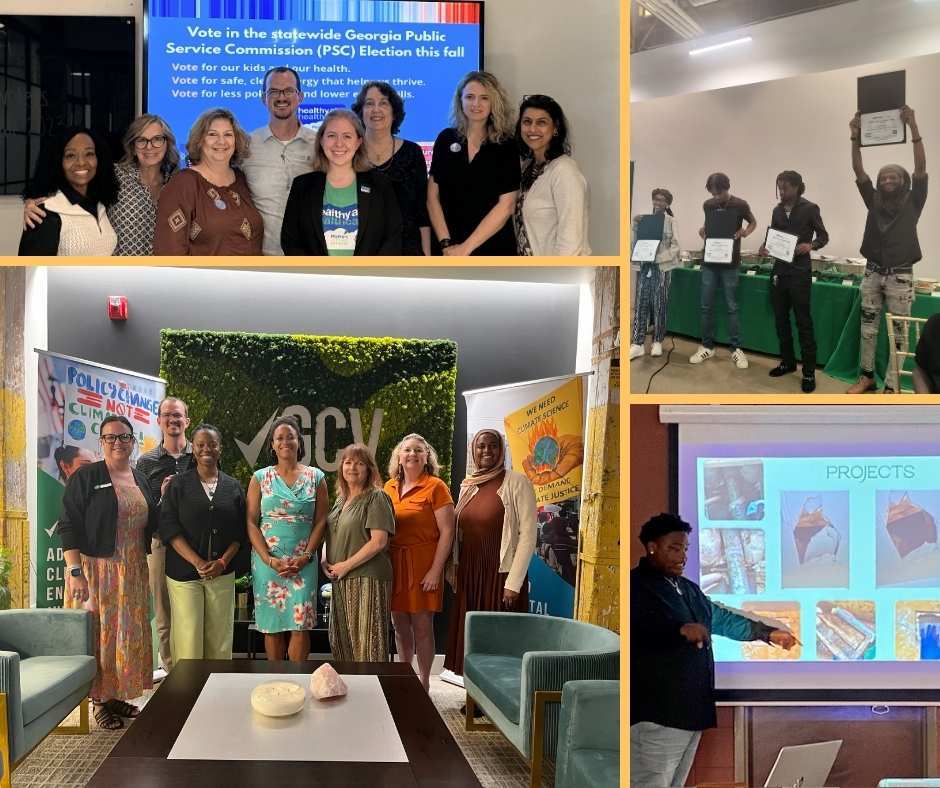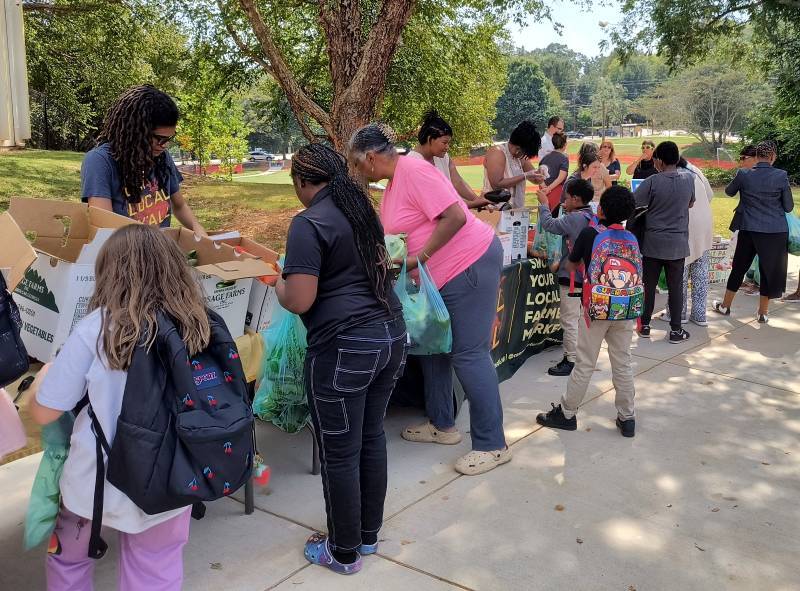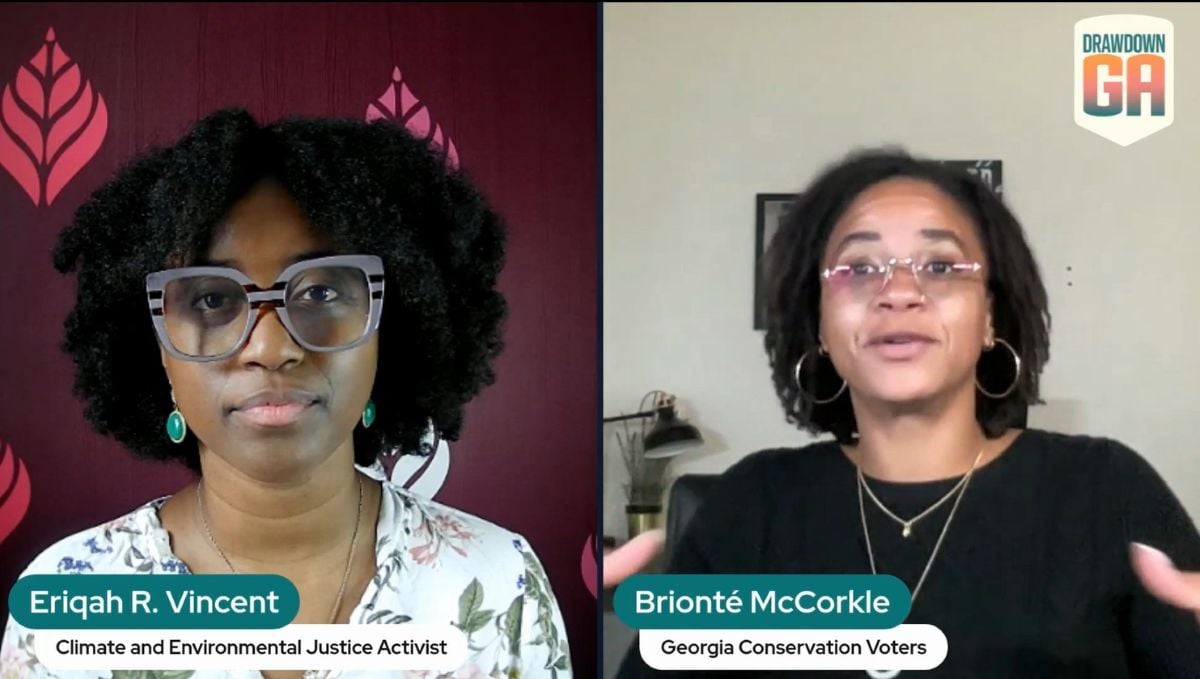Is there a better time to enjoy plant-based eating than when summer transitions to autumn, as gardens and farmers' markets overflow with gorgeous fresh vegetables and fruits? It just makes sense to slow down for a minute and enjoy it.
The best thing about plant-based eating as a climate solution is that it doesn't limit us to just plants. It only encourages us to do our best to make crops from the garden, the orchards, and the fields more prominent in our diets.
Savoring Summer’s Bounty with Plant-Based Eating
To provide fresh inspiration around plant-based diets, Drawdown Georgia co-hosted a conversation and cooking demonstration with chefs Tia and Matthew Raiford at Gilliard Farms in Brunswick, Georgia.
In addition to preparing a Plant-Forward Coastal Paella and Hoja Santa Salad With Pepitas, the Raifords shared perspectives about their own approach to plant-based eating. They also offered tips for getting the most out of seasonal produce.
Watch the full recording below, or keep reading to learn more.
Meet Tia and Matthew Raiford
A descendant of the freshwater Gullah Geechee of coastal Georgia, Matthew grew up on land that has sustained his family for seven generations. Gilliard Farms was purchased by his great-great-great-grandfather, Jupiter Gilliard, in 1874. Tia was born in Albany, New York, raised in Connecticut, and grew up the daughter of a musician.
Matthew and Tia are graduates of the Culinary Institute of America and between them, they have many accolades as well as beautiful shared experiences. They are also owners of Strong Roots 9, a lifestyle brand through which they create products and experiences to help us reconnect with our natural heritage from the perspective of the people whose ancestors actually built it.
Matthew Raiford is a long-time friend of Drawdown Georgia and participated in the launch in October 2020, where he first introduced our community to the amazing sustainability work being done at Gilliard Farms.
Tips for Plant-Based Eating and Reducing Food Waste
The Raifords shared many cooking tips that are easy to implement at home to adopt a plant-based diet and help reduce food waste, too.
-
It’s not all or nothing. Going plant-based doesn’t mean you have to go vegan! Matthew recommends adopting an “all things in moderation” approach. You can gradually swap out meat for plant-based ingredients like beans and mushrooms and don’t need to commit to avoiding animal products entirely if you don’t want to. You can still have a big impact on emissions just by replacing some of the meat in your diet with plant-based foods.
-
Make your own stock. Save up vegetable scraps and leftovers to make your own stock. Not only are you transforming ingredients that could have gone to waste into a flavorful and nutritious broth, but you are saving money by making it yourself rather than buying prepared broth.
-
Look for local sources. Seek out locally-grown alternatives to meats that you can use in your cooking to reduce emissions even more. In his paella, for example, Matthew used mushrooms from a local farmer in place of sausage. By buying local, you are keeping your dollars in the local economy and also using ingredients that create fewer transportation-related emissions to get them from the farm to your kitchen. Plus it’s fun to know the farmers in your community!
-
Fresh is best. Cooking fresh produce can be an adjustment if it hasn’t been your routine in the past, but the Raifords recommend fresh produce and especially fresh herbs for the best flavor and health benefits. To help prevent waste, make sure your fresh produce is easy to see in the front of your fridge and crisper drawers to encourage you to use it.
-
Be intentional. The best way to enjoy plant-based eating is to prioritize cooking fresh food with your family. Intentionally setting aside time to prepare delicious and nutritious plant-based meals is worthwhile in the Raifords' eyes if you want to get the most enjoyment out of your meals.
-
Make it at home. The Raifords have found that a plant-based way of life can inspire you to make more things yourself. For example, you might decide to start a compost bin to compost your food scraps and nurture a small vegetable garden. You might also be inspired to make everything from vegetable stock to homemade tortilla chips that taste better and are better for you. Making things from scratch can save you trips to the store, helping you reduce emissions even further.
Bress ‘N’ Nyam: Gullah Geechee Recipes from a Sixth Generation
With a title that means “bless and eat” in Gullah Geechee, Matthew’s cookbook pays homage to this cuisine that nurtured his family for seven generations.
Recipes in the book reflect various local and cultural influences on different dishes. It isn’t a vegetarian cookbook, but it features many plant-forward recipes, particularly the entire first chapter.
Don’t Miss Out on Future Events from the Drawdown Georgia Climate Community!
How can you stay up to date on future webinars and events from Drawdown Georgia? Click the button below to subscribe to the Georgia Climate Digest and receive climate news and event updates in your inbox twice per month.









